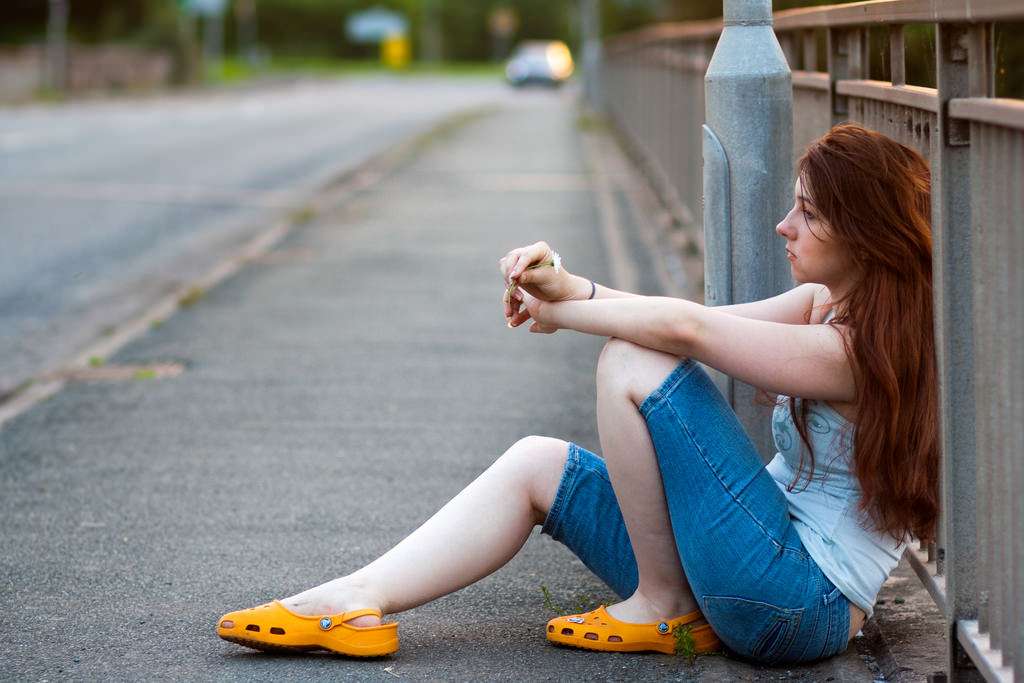Coercion Dressed Up As Compassion for L.A.'s Teen 'Sex Trafficking' Victims


For three years, Los Angeles court Commissioner Catherine Pratt has set aside Tuesdays for focusing exclusively on sex-trafficking cases. A Los Angeles Times profile of Pratt's work starts with what's designed to be a heartwarming anecdote about the personal interest she takes in the teens that appear before her. This particular teen was both pregnant and locked up on prostitution charges.
Pratt told the girl that if she would stop running back to the streets, Pratt would place her in a group home where she could eat what she wants, keep her child out of foster care and hold the baby shower she fantasizes about.
"You'll have to let me know when it is. I'd like to go," Pratt said, prompting a startled chuckle from the girl. "You're not doing this alone. We're going to help you."
I suppose "help" is in the eye of the beholder. In this case, it means keeping a pregnant teen locked up in juvenile jail because she accepted payment for sex, but still talking to her in really nice tones. The Times article thinks this is a wonderful illustration of the "softer approach" that Los Angeles County supervisors, social workers, and police officers are taking when it comes to prostitution. It even trots out what's become the sine qua non of sex trafficking scaremongering: the idea that "criminal gangs are increasingly turning" to it because "a drug is sold once, but a child is sold over and over."
But if you read on, it becomes clear that many if not most of the teens who appear before Pratt aren't being held against their will and forced into selling sex. They may be runaways. They may have grown up and live in poverty. They may not have a lot of options available to them. They may want help finding another path, even. But they're not the image of "sex trafficking victims" that most have in mind. And I think the distinction does matter.
Pimping out young girls, even in the absense of abuse or force, should be against the law, just as having sex with minors is against the law. But even young girls have agency. I was a precocious and rebellious teen not so far long ago that I can't remember what it felt like. And it felt like I was perfectly capable of making sexual choices for myself. The point I'm trying to make is that it can be both a) wrong to aid the sale of sexual services from minors, and b) not necessarily a situation in which the minor is acting counter to his or her will.
Because people don't like the idea of teens engaging in sex work—and I'm not saying they should—they want the government to do something about it, and the way to get people under state jurisidction is to define them as either criminals or helpless victims. So if teen sex workers aren't criminals, they must be children whom the state has an obligation to protect coercively.
L.A. has at least decided that these young sex workers aren't criminals. "Police officers are receiving training in many parts of the county to call the child abuse hotline when they find children engaged in prostitution instead of booking them for a crime," the Times piece notes. Yet people can't make the leap from teen (or any) prostitutes not being criminals to teen prostitutes not being victims. They must be one of the other. They must so that the state can step in.
Los Angeles county officials are currently "debating whether to ask Sacramento lawmakers" to change California law. Right now, they can't legally send juvenile sex workers to locked detention facilities without charging them with a crime. County officials don't want to charge them with a crime, they just want to be able to lock them up "to prevent them from returning to their pimps."
This shouldn't be acceptable. Teenagers may not have the full capacity to consent or bear as full a responsibility for their actions as adults do, but they're not mentally incapacitated. The government shouldn't be able to lock up a 15-year-old girl 'til her 18th birthday to stop her from having sex in a way of which it disapproves.
Luckily, others in L.A. think getting these teens into foster homes is a better option, and are working toward making that more of a priority. Critics complain that "children will use the freedom of unlocked facilities to spend more time on the streets." But if it's a choice between a system where some small percentage of teens will engage in prostitution and a system where we create elaborate, state-expanding, liberty-infringing mechanisms to prevent these teens from engaging in prostitution, I will take the former.


Show Comments (24)